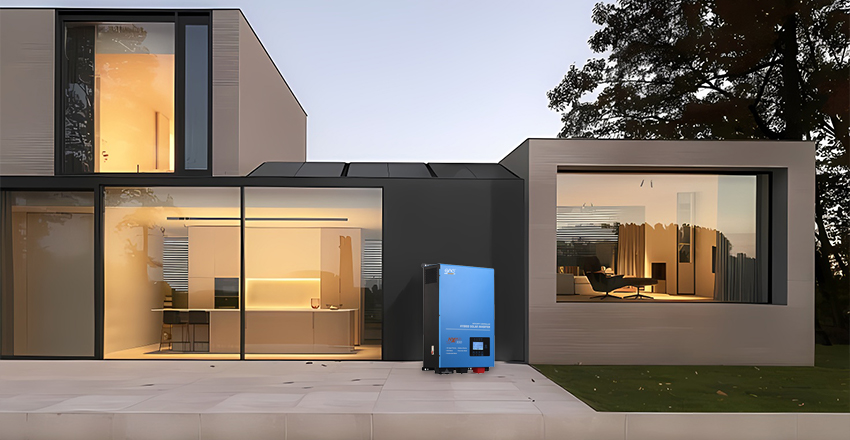By integrating and optimizing usage of solar energy systems, solar energy inverters have become an essential component in powering modern homes and businesses. Such devices also convert direct current (DC), which solar panels generate into alternating current (AC) to power appliances, machinery, and other electrical systems. What makes solar inverters crucial nowadays is their role not just in converting energy, but in improving the overall efficiency of the system, offering a means of managing your energy, and helping the sustainability movement.

Solar panels generate direct current (DC) electricity, which can’t be used in most households and businesses. Solar inverters help here, converting DC into AC electricity, making it usable for electrical devices. Quality inverters (MPPT – Maximum Power point tracking) reduce the energy loss during the conversion of direct current (DC) into alternating current (AC), thereby optimizing the output whenever the input varies (when the amount of sunlight varies due to clouds block the sun rays).
How to Optimize Energy Usage in Our Homes
In residential setups, they enable consumers to make the most efficient use of the energy generated. Smart inverters with monitoring capabilities offer real-time data on energy generation and utilization, enabling users to modify their energy practices and minimize waste. Since hybrid inverters work perfectly with battery storage systems, homeowners are now able not only to generate energy, but also to store it for later use, such as in the evening or in the event of a power cut. Not only does this ensure energy availability, but also reduces dependency on grid electricity, bringing down utility bills.
Solar inverter solutions are critical enablers of cost-effective and reliable energy. String inverter or large-scale centralized inverters control multiple solar panels. These systems make it easier for businesses to hedge against energy price spikes, hit sustainability targets, and keep operating when demand spikes. Moreover, grid-tied inverters enable businesses to sell excess energy back to the grid, generating a supplementary income source.
Modern solar inverters enable the smooth integration of solar systems with local power grids. The controllers harmonize the energy output of solar cells with the requirements of the grid, allowing for surplus energy to be exported and preventing interference. Under net metering programs, both homeowners and businesses are compensated by being credited for surplus energy, which serves as an incentive to adopt renewable energy systems in greater numbers.
Enhancing Sustainability with the Role of Solar Energy Inverters They reduce dependence on fossil fuels and limit greenhouse gas emissions by harnessing, converting, and storing solar energy efficiently. Home and business owners that harness solar inverters are making a proactive move toward energy independence and environmental awareness.
Solar inverters also improve the reliability of solar power systems by managing fluctuations in energy production due to shading, temperature changes, or panel degradation. Advanced inverters also offer functions like surge protection, voltage regulation and fault detection that will help protect both the solar panels and appliances connected to the system. It ensures that the system function will be standard in terms of performance and last long for a considerable amount of time.
Scalability for Expanding Energy Demand
Solar inverters do more than just convert the energy that we use, they also make it incredibly simple to expand existing systems as energy requirements grow. For example, microinverters provide panel-level monitoring and optimization, making them suitable for modular residential deployments. Businesses adopting modular inverter systems can scale as needed — adding panels to grow over time without major upgrades required at the outset, thus providing agility and long-term value.
Most modern solar inverters are imbued with smart technologies such as mobility apps, and cloud-based connectivity. These features give users a better understanding of energy trends, system performance and maintenance needs. Smart inverters are also capable of integrating with home automation systems, creating comprehensive energy management solutions that suit the new dynamics of modern living and places of work.
Making the right decision on which solar inverter to use is critical to performance. Residential customers might value hybrid inverters for energy storage options, while commercial clients might prefer string or centralized inverters for larger installations. Factors such as energy requirements, system dimensions, and price range will inform the decision-making process.
Our solar energy inverters are at the heart of modern solar power systems, powering homes and businesses with efficiency and reliability. By converting and managing solar energy effectively, they enable energy savings, promote sustainability, and support energy independence. Whether for a small home setup or a large commercial installation, investing in a high-quality solar inverter is a key step toward harnessing the full potential of solar energy in today’s world.